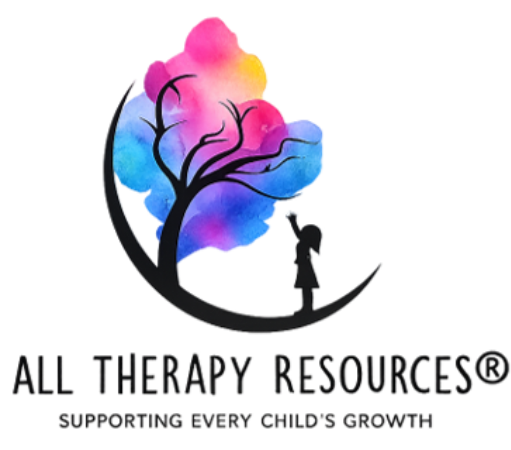
As an experienced school counselor, I’ve witnessed firsthand the critical role executive functioning plays in the development of young children. It’s the bedrock upon which a child’s academic, emotional, and social growth is built. Today, I want to share my insights and strategies to support fellow counselors in nurturing these vital skills in our young charges.
Understanding Executive Functioning in Children
Executive functioning refers to the mental processes that enable us to plan, focus attention, remember instructions, and juggle multiple tasks successfully. These skills are crucial for school readiness and academic success.
The Core Components
- Working Memory: This is the ability to hold and manipulate information in the mind. It’s crucial for understanding instructions and solving problems.
- Cognitive Flexibility: This involves the capacity to think about multiple concepts simultaneously or switch between different concepts. It’s key in adapting to new information or changing rules.
- Inhibitory Control: This skill helps children control their impulses, focus on a task, and behave appropriately in social situations.

The Role of School Counselors in Enhancing Executive Functioning
As counselors, we’re uniquely positioned to observe, assess, and foster these skills in students. We can work closely with teachers and parents to create supportive environments that encourage the development of executive functioning.
Strategies for Counselors
- Observation and Assessment: Regularly observe students in different settings to identify those who might struggle with executive functions. Use formal and informal assessment tools to understand their needs better.
- Collaboration with Teachers: Work with teachers to integrate executive function skill-building into classroom activities. Encourage practices like task initiation, goal setting, and time management.
- Parental Involvement: Educate parents about executive functioning and provide them with strategies to support their child’s development at home.

Practical Activities to Boost Executive Functioning
In The Classroom
- Memory Games: Simple games like ‘Simon Says’ or memory card games can enhance working memory.
- Role-Playing Scenarios: This helps children practice impulse control and adaptability in different social contexts.
- Organizational Skills: Encourage the use of planners, checklists, and time management tools.
At Home
- Routine Building: Encourage parents to establish consistent daily routines.
- Problem-Solving Activities: Cooking, puzzles, and age-appropriate chores can enhance cognitive flexibility.
- Mindful Practices: Activities like yoga and meditation can improve focus and self-regulation.

Overcoming Challenges in Developing Executive Functioning
Despite our best efforts, developing these skills can be challenging for some children. It’s crucial to identify these struggles early and provide targeted interventions.
Identifying Red Flags
- Difficulty in Following Instructions: Struggle to follow multi-step instructions could be a sign of weak working memory.
- Struggle with Changes: Difficulty in adapting to changes in routine or rules might indicate poor cognitive flexibility.
- Impulsive Behavior: Frequent impulsivity could be a sign of underdeveloped inhibitory control.
Interventions
- Targeted Skill Development: Focus on specific skills through tailored activities and games.
- Professional Collaboration: Work with teachers, special educators, and psychologists for a comprehensive approach.
- Regular Monitoring and Support: Continuously assess the progress and adjust strategies accordingly.
The Long-Term Impact of Strong Executive Functioning
Children with well-developed executive functioning skills are better equipped to face academic challenges and social situations. These skills are predictors of not only academic success but also overall well-being.

Executive Functioning Activities: Unleashing the Potential in Young Learners
Developing executive functioning in children is akin to preparing them for the vast savannas of learning and the jungles of daily life challenges. As an experienced school counselor, I’ve seen the transformative power of specialized activities that resonate with children. In this section, I’m excited to share with you a treasure trove of activities, each uniquely designed to strengthen a particular executive function skill. Let’s embark on a safari through these resources, crafted to captivate and educate our young explorers.
The Self-Checking Seal: Mastery Through Monitoring
Children adore the Self-Checking Seal, which introduces them to the essential skill of self-monitoring. Through creative crafts and lessons, they learn the significance of accuracy and staying aware while completing tasks. This resource instills a sense of responsibility and promotes task accuracy.
The Focused Fox: Cultivating Concentration
The Focused Fox engages children with activities that bolster concentration. These thoughtfully designed tasks are crucial for helping students remain focused, undistracted by the bustle of a busy classroom or home environment.
The Planning Penguin: Strategizing for Success
Strategic planning becomes an adventure with the Planning Penguin. This endearing character guides children through goal-setting, using crafts that nurture forward-thinking and organizational skills—vital for young minds preparing to navigate the complexities of life.
The Balancing Priorities Bear: Essential Decision-Making
With the Balancing Priorities Bear, children learn to weigh their responsibilities effectively. Through bear-themed projects, they prioritize tasks, an invaluable life skill that enhances decision-making and problem-solving abilities.

The Being Organized Owl: Wisdom in Order
The owl, a symbol of wisdom, teaches children the art of organization. Through interactive crafts and strategies, the Being Organized Owl helps keep young minds and their environments ordered and purposeful.
The Time Management Tortoise: The Virtue of Patience
Embracing the slow yet steady approach, the Time Management Tortoise offers activities that instill patience and efficiency. It’s a gentle reminder that often, taking our time can lead to better results and less stress.
The Task Completion Crocodile: Finishing What You Start
The Task Completion Crocodile ensures that once a task is begun, it’s followed through to completion. This resource is crucial for teaching students the satisfaction and importance of seeing things through.
The Self-Regulation Snake: Emotional Intelligence Unwound
Wrapping around the complex topics of emotional control, the Self-Regulation Snake provides calming crafts and lessons. It’s an invaluable tool for teaching students how to manage their emotions and react adaptively to situations.
The Flexibility Frog: Leaping Towards Adaptability
The Flexibility Frog introduces children to the power of adaptability, helping them to bounce back and adjust to changes seamlessly. This resource fosters resilience, a quality that serves them well in all facets of life.
The Impulse Control Iguana: Thoughtfulness in Action
The Impulse Control Iguana helps children to pause and think before acting. Mastering impulse control is essential for making considered decisions and resisting the temptation of immediate gratification.
The Self-Aware Stegosaurus: Reflective Growth
Join the Self-Aware Stegosaurus in self-reflective crafts and lessons. Students explore personal strengths and identify areas for growth, paving the way for self-improvement and confidence.
The Task Initiation Tyrannosaurus: Igniting Enthusiasm
With the Task Initiation Tyrannosaurus, starting new tasks becomes an exhilarating challenge. Dinosaur-themed activities ignite enthusiasm and bring clarity to the initiation of tasks.

The Attention Control Apatosaurus: Extending Focus
The Attention Control Apatosaurus helps students extend their focus through engaging crafts. These activities are designed to enhance their ability to maintain attention and control over potential distractions.
The Breaking Down Tasks Brachiosaurus: Simplifying Complexity
Reach new heights with the Breaking Down Tasks Brachiosaurus, learning to simplify complex tasks into manageable steps. Its towering presence in the classroom represents the surmounting of academic challenges.
The Persistence Pterodactyl: Embracing Challenges
Soar through challenges with the Persistence Pterodactyl. This resource provides flight-inspired crafts that develop grit and determination, teaching students that perseverance is key to overcoming difficulties.
The Self-Monitoring Spinosaurus: Keeping Track
The vigilant Spinosaurus teaches students to self-monitor with techniques that help them stay on top of tasks and self-correct. It’s a dynamic way to foster responsibility and independence in learning.
The Brainstorming Brontosaurus: Innovating Solutions
With the Brainstorming Brontosaurus, children stretch their creative thinking muscles. They learn to brainstorm multiple solutions to problems, sparking innovation through prehistoric-themed activities.
The Trouble Shooting Triceratops: Problem-Solving Prowess
Finally, the Trouble Shooting Triceratops embodies the essence of problem-solving. Children learn to employ critical thinking to navigate obstacles, using crafts that enhance this vital executive functioning skill.
Incorporating these characters and their themed activities into our counseling toolbox is more than just a learning strategy—it’s about creating a captivating world where executive functions thrive. I encourage my fellow counselors to reference and utilize these resources, which are sure to engage and inspire our young students on their journey to becoming organized, adaptable, and self-aware individuals.
A Call to Action for School Counselors
Remember, as school counselors, we play a pivotal role in shaping the future of our young learners. By focusing on executive functioning, we can provide them with the tools they need to navigate the complexities of life successfully.
Key Takeaways
- Be Proactive: Regularly assess and observe children’s executive functioning skills.
- Collaborate and Educate: Work with teachers and parents to create supportive environments.
- Tailor Your Approach: Recognize that each child is unique and may require different strategies.
- Stay Informed and Adaptive: Keep abreast of the latest research and be flexible in your methods.
- Celebrate Progress: Acknowledge and celebrate small milestones in children’s development.
In conclusion, fostering executive functioning in young children is a journey filled with challenges and rewards. By leveraging our unique position as school counselors, we can make a lasting impact on our students’ lives, setting them up for success in school and beyond. Let’s embrace this responsibility with enthusiasm and commitment, for the brighter future of every child in our care.








